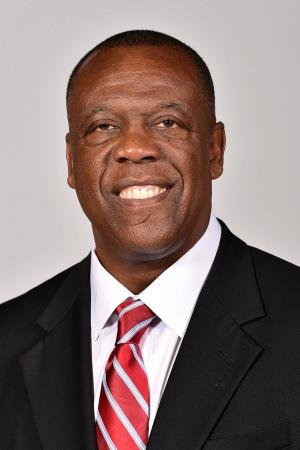Ernie Kent
Prostate Cancer Survivor
As an African American man who has been getting regular prostate cancer screenings for years, I know firsthand the importance of taking control of your health. I started getting screened at age 50, as recommended by my doctor, and continued to do so every year. I knew that prostate cancer was more common in African American men and tended to be more aggressive, so I made it a priority to stay on top of my health.
For years, my PSA levels remained stable and within the normal range. However, during a screening when I was 65, my doctor noticed that my levels had increased. We ran some additional tests and a biopsy, which confirmed that I had prostate cancer.
I was scared, of course, but I was also grateful that we had caught it early. My doctor explained to me that there were several treatment options available, including surgery, radiation, and active surveillance. He gave me all the information I needed to make an informed decision about my treatment.
After careful consideration and discussions with my family, I decided to undergo surgery to remove the cancerous prostate gland. It was a tough decision, but I felt that it was the best course of action for me.
The surgery was a success, but the recovery process was not easy. I experienced some discomfort and had to take it easy for a while, but I had a great support system in my family and medical team. Over time, I regained my strength and was able to resume my normal activities.
Going through this experience made me realize how important it is to prioritize your health and take proactive steps to prevent and detect diseases early. I'm grateful for my regular screenings, which allowed us to catch the cancer early, and for the excellent care I received from my doctor and medical team.
To any African American men who may be reading this, I urge you to take control of your health and get regular prostate cancer screenings. It can be an uncomfortable and even scary experience, but it could ultimately save your life. And if you do receive a diagnosis, know that there are several treatment options available, and you have the power to make the best decision for yourself. Don't be afraid to reach out to your doctor and loved ones for support, and know that you are not alone in this journey.
Dwayne McIntosh
Prostate Cancer Survivor
In 2020, I received a stage four diagnosis, but seeking a second opinion at the Mayo Clinic changed everything.
Dr. Mitch Humphrey, the chief of the urology department, took the time to explain prostate cancer and available treatments to me. As an African American, I had deep-rooted mistrust, especially towards white doctors. My ignorance about the disease and its impact added to my fears and concerns.
Despite holding multiple degrees, I was clueless about prostate cancer and its effects. It wasn't until adulthood that I learned my father had it too, but he passed away from colon cancer. I never received consistent PSA tests, and testosterone treatment actually worsened my condition.
Eventually, I had to have my prostate removed, which successfully eliminated the cancer. However, dealing with the aftermath of erectile dysfunction was challenging. I chose to have an implant, and it has significantly improved my quality of life, especially as an African American man.
Prostate cancer doesn't have to be a death sentence. Early detection is the key, especially for African American men who face higher risks. There are resources available for those who can't afford or find the tests invasive.
I'm here to emphasize the seriousness of this disease, both physically and psychologically. The myth that testing is invasive is untrue; it's a simple blood test similar to checking your sugar levels. I implore you to be proactive and get tested.
Don't rely solely on your primary care physician; if your PSA levels are two or higher, seek a referral to a urologist immediately. Early intervention is crucial. We can combat prostate cancer together, raising awareness and encouraging others to get tested.
This disease has claimed countless lives, and it's time for us to take a stand. By sharing my story, I hope to prevent others from experiencing what my family and I went through. Let's fight back against prostate cancer and protect our loved ones.
Please, get yourself tested. And if you're unsure where to go, check the resources available on this website. Remember, early detection can save lives. Together, we can overcome this.


